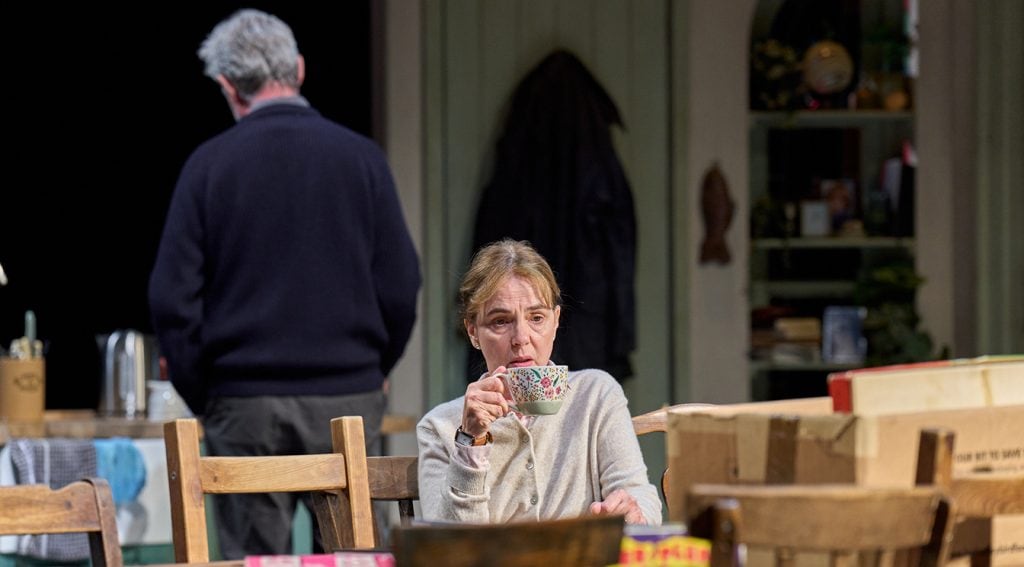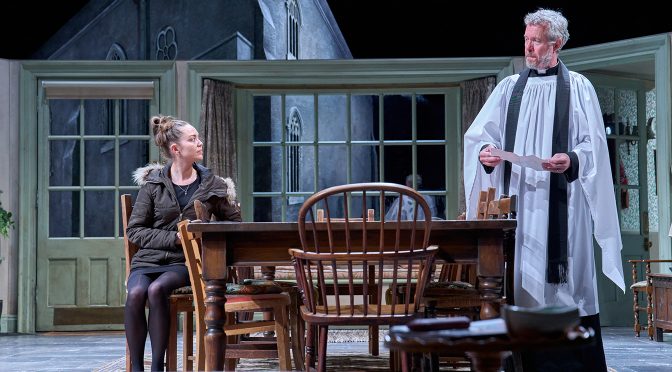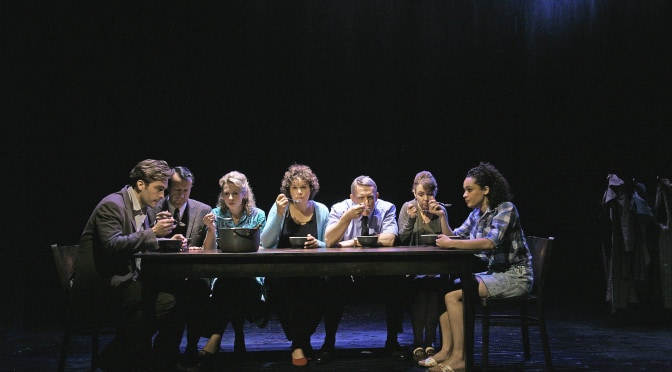The nice surprise in Stephen Beresford’s new play is that it isn’t just a vehicle for Alex Jennings. Taking the lead as wayward vicar David Highland, Jennings is – as always – excellent. But the show boasts a superb ensemble, impeccably directed by Nicholas Hytner, who all make the most of a play that tries very hard.
The scenario comes (deliberately?) close to silly: the vicar puts his foot down about balloons in his church for the titular child’s funeral. All the fuss (about hot air) becomes serious because of social media. Threats are made and Beresford does well with menace. It turns out the real issue is “integrity” – unfortunately, it’s Jennings and not the script that makes this convincing.
It’s a neat enough central dilemma to work a drama around, in the style of Ibsen. Highland is a flawed character but still wants to take a stand. His long-suffering family, the church and the wider community are quick to accuse him of hypocrisy. Of course, that doesn’t change the strength of his argument. I’m just not sure the argument is that good in the first place.
Beresford looks at balance, questioning and compromise – or at least his characters say they want all this. These aims shouldn’t be a surprise… this is the Church of England. But too much time is taken over disgruntled views of the modern world and ‘woke’ culture. To be generous, it seems the motivation is comedy. But that humour is a problem.
There are laughs in The Southbury Child. Quite a few, actually. But the jokes are painfully effortful. The treatment of Londoners, the politically correct or class differences are all clichéd. You can see every punchline a mile off. And, when in doubt, Beresford just makes the vicar swear. Jokes are forced on characters and into a script that so wants to be funny it feels desperate.

Beresford tackles plenty of issues. All the characters are given a chance as adoption, adultery, alcoholism and gay marriage are mentioned. These lead to strong performances from Racheal Ofori and Jo Herbert as Highland’s daughters, while his wife, played by Phoebe Nicholls, is stunning. There are stumbles with the working-class characters (the family whose child is to be buried) but further excellent work from Josh Finan and Sarah Twomey, who take the parts. The acting is five-star quality.
Yet it feels as if characters are assigned problems to represent – so that we come close to ticking off a plan of action. It’s not that any of the scenes are bad, more that they add up to something both confused and rigidly planned. The play loses focus and spends a long time looking for topicality and offering cheap gags. There’s a point made – that life is messy. But the vicar wants to make a claim not for mess but – nuance – and The Southbury Child lacks that very quality.
Until 27 August 2022
Photos by Manuel Harlan


